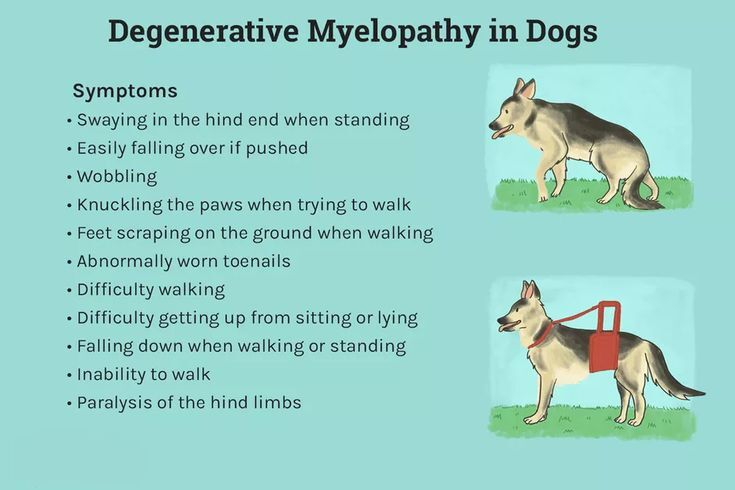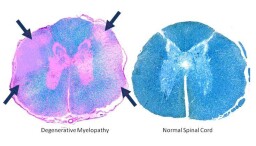DM- Degenerative myelopathy
Phenotype: Affected dogs usually present clinical signs of disease in adulthood (at least 8 years of age) with gradual muscle wasting and loss of coordination typically beginning in the hind limbs. Disease progression continues until the dog is unable to walk. Small breed dogs tend to progress more slowly. In late stages of the disease, dogs may become incontinent and the forelimbs may be affected. Affected dogs may fully lose the ability to walk 6 months to 2 years after the onset of signs.
Mode of Inheritance: Autosomal recessive, incomplete penetrance
Alleles: N = Normal/Unaffected, DM = Degenerative myelopathy
Breeds appropriate for testing: Many breeds carry the SOD1 allele, but the following breeds have been reported as clinically-affected breeds: American Eskimo Dog, Australian Shepherd, Bernese Mountain Dog, Bloodhound, Borzoi, Boxer, Cardigan Welsh Corgi, Cavalier King Charles Spaniel, Chesapeake Bay Retriever, Czech Wolfdog, English Springer Spaniel, German Shepherd, Golden Retriever, Hovawart, Kerry Blue Terrier, Labrador Retriever, Pembroke Welsh Corgi, Pug, Rhodesian Ridgeback, Rough Coated Collie, Soft Coated Wheaten Terrier, Standard Poodle, and Wire Fox Terrier. Crossbred dogs have also been reported as clinically affected by SOD1-associated DM.
Explanation of Results:
Dogs with N/N genotype will not have degenerative myelopathy and cannot transmit this allele to their offspring.
Dogs with N/DM genotypes will not have degenerative myelopathy as a result of this allele, but are carriers. They will transmit this allele to 50% of their offspring. Matings between two carriers are predicted to produce 25% of puppies at risk for developing degenerative myelopathy.
Dogs with DM/DM may have degenerative myelopathy, a disabling condition, and will transmit this allele to all of their offspring.


